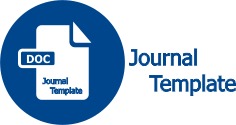PENGARUH e-INFORMATION TERHADAP NIAT BELI PADA BISNIS PERHOTELAN DI SURABAYA
DOI:
https://doi.org/10.30651/blc.v12i02.1566Abstract
ABSTRACTÂ
The development of internet technology, the business world is entering an era where marketing becomes cheaper and easier to access. Especially in hospitality marketing, one of the many in use by the website of hotel reservation service providers, reviews (reviewer) become a reference in the use of potential customers as additional information to strengthen the decision of the hotel to be selected.This research is useful to help managed hotel business, especially those using hotel reservation service provider website to do promotion and dissemination of information. This way of marketing e-Information is believed to be the most effective way of marketing because it involves recommendations from people close to the consumer.Therefore, in this study, the research would like to raise the impact of consumer electronics reviews on buying intentions on the website of hotel reservation service providers. Based on previous research, information quality, source credibility and number of reviews are constructed in use as independent variables that have an impact on consumers' buying intentions.The test is done by using multiple regression and simple to find a significant influence between variables. The results of this study indicate that the variables of trust to the source and number of reviews that have influence on the intention to buy on the website of hotel information provider.
Â
Keywords : e-Information, hotel, consumer reviews, information quality, source credibility, purchase intentions
Correspondence to :anangfirmansyah.61@gmail.com, budi.w.mahardhika@gmail.com
References
Cheung, C.M.K dan Thadani, D. R. 2010. The Effectiveness of Electronic Communication: A Literature Analysis. 23rd Bled eConference e-Trust: Implication for theIndividual, Enterprises and Society. June 20 – 23, 2010; Bled, Slovenia.
Cheung, C.M.K., Lee, M.K.O, Rabjohn, N. 2008. The impact of electronic communication: The of online opinions in online customer communities. Internet Research. 18(3), pp.229-247.
Cheung, M., Luo, C., Sia, C., & Chen, H. 2009. Credibilit y of Electronic communication:Informational and Normative Determinants of Online Consumer Recommendations. International Journal of Electronic Commerce, 13(4),9.
Chevalier, J.A. and Mayzlin, D. 2003. The Effect of Word of Mouth on Sales: Online Book Reviews. NBER Working Paper No. 10148.
Eagley, J.E. and Chaiken, S.1993. The Psychology of Attitude, Harcourt Brace
Jovanvich,FortWorth, TX.
Grail Research.2011. Consumers of Tomorrow Insights and Observations AboutGeneration
Gursoy, D., and K.W. MCClearly. An Integrative Model of Tourists’ Information Search Behavior, Annals of Tourism Research. 2004.
Hair, J.F.Jr., Black, W.C., Babin, B.J., Anderson, R.E. 2010. Multivariate Data Analysis, AGlobal Perspective. 7th Ed. Pearson Education, Inc, Upper Saddle River.
Lee, J., Park, D.H., Han, I. 2007. The effect of negative online consumer reviews on product attitude: An information processing view. Electronic Commerce Research andApplication. Vol. 7, pp. 341-352.
Lee, S. H., 2009. How do online reviews affect purchasing intention?. African Journal Business Management. Vol.3(10), pp. 576-581.
Lin, P.J., 2009. Factors Influencing Purchase Intention for Online Travel Products- Case Study of Taiwanese Consumers. Thesis submitted to the Cardiff School of Management.
Litvin, Stephen W., Goldsmith Ronald E., and Pan, Bing. 2008. Electronic word- of-mouth in Hospitality and Tourism Management. Tourism Management. Vol 29. 458 – 468.
Meladze, Maria and Jerenashvili, Nino. 2012. Demand for Modern Information and Communication Systems in Tourism. Europe Scientific Journal. Vol. 8, No. 2. P.1857 – 7881
OECD (Organisation for Economic Co-Operation and Development) Report.2004. ICT, e-business and SMEs.
FranceBhattacherjee, A., Sanford, C. 2006. Influence process for information technology acceptance: anelaboration likelihood model. MIS Quarterly, Vol. 30 No. 4, pp. 805 – 25.
Park, C. and Lee, T. 2009. Information direction, website reputation and eWOM effect: Amoderating role of product type. Journal of Business Research, 62(1), 61.
Park, Do-Hyung, Kim, Sara, Han, Ingoo, 2008. The effects of Consumer Knowledge on Message Processing of Electronic Word of Mouth Via Online ConsApplications.
Petty, E. R., Cacioppo, J. T., Shumann, D., 1983, Copyright 2001. Central and Peripheral Routesto Advertising Effectiveness: The Moderating Role of Involvement. Journal of Consumer Research. Vol. 10. pp.135-136.
Sullivan, C.1999. Marketing the web in other media. Editor & Publisher.
Vol.132(9), p. 30.Wixom, B.H., and Todd, P.A. 2005. A theoretical integration of user satisfaction and technology acceptance.Information System Research.Vol. 16(1), pp. 85-102.
Tag-Eldeen,Asraf A.2010 Assesment of Electronic word-of-mouth on Customers’ Purchasing Decisions of Hospitality Services in Egypt. 2nd Advances in Hospitality & Tourism Marketing and Management Conference. ISBN: 978-960-287-139-3.
World Economic Forum.2012. Insight Report: The ASEAN Travel and Tourism Competitiveness Report 2012, Fostering Prosperity and Regional Integration through Travel and Tourism. Geneva.














